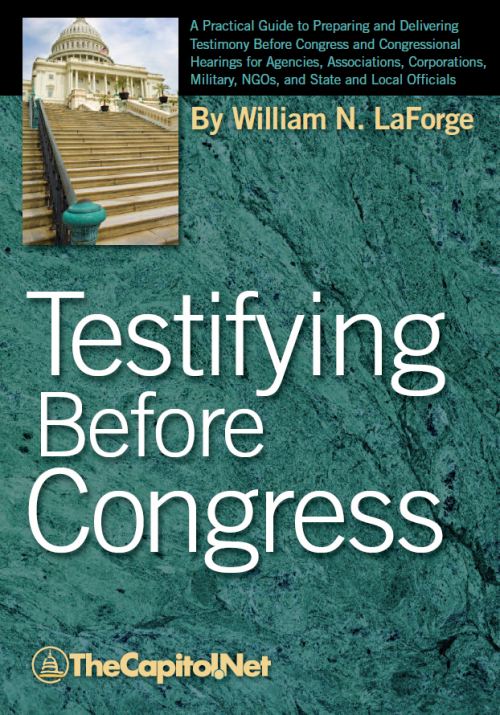As a prospective public witness testifying before Congress, it is essential to have a solid understanding of the Truth-In-Testimony rules that witnesses are required to comply with and the consequences that can result for failing to comply.

To the greatest extent possible, witnesses who appear before each committee are required to submit written statements of their proposed testimony in advance. In addition, they are also required to limit their oral presentations to brief summaries. In the event a witness will appear before a committee in a nongovernmental capacity, a written statement of proposed testimony should include a curriculum vitae for the witness as well as a disclosure regarding the amount and the source of any Federal grants or contracts that have been received during that current fiscal year or either of the two prior fiscal years. This applies not only to the witness, but also to any organization represented by the witness.
The purpose of this rule is to provide committee members as well as the public and the media a more detailed context in which the testimony of the witness can be considered regarding their experience, education and the extent to which they or their organization have benefited from Federal contracts and grants.
 The intention of this rule is not to require witnesses to disclose the amounts of Federal entitlements they might have received from sources such as Social Security, Medicare or income support payments. Farmers are also not required to disclose amounts they might have received regarding commodity or crop price support payments. Failure to fully comply with this requirement would not result in a point of order against the witness testifying. With that said, such failure to comply could result in an objection that could potentially include the testimony of the witness in the record of the hearing. This objection would take the place of a traditional disclosure.
The intention of this rule is not to require witnesses to disclose the amounts of Federal entitlements they might have received from sources such as Social Security, Medicare or income support payments. Farmers are also not required to disclose amounts they might have received regarding commodity or crop price support payments. Failure to fully comply with this requirement would not result in a point of order against the witness testifying. With that said, such failure to comply could result in an objection that could potentially include the testimony of the witness in the record of the hearing. This objection would take the place of a traditional disclosure.
The information provided by the witness to the committee prior to the hearing can be helpful to the committee during the preparation stage. A wealth of information is often included in a briefing book prepared by the committee staff. This information can include not only Truth-in-Testimony disclosures, but also other information such as witness background biographical information.
To learn more about preparing to testify before Congress, you might consider attending our workshop Preparing and Delivering Congressional Testimony, also available for custom, on-site training.
Reference: Testifying Before Congress, by William LaForge, Section 2.7 Special Rules Regarding Truth in Testimony
More
For more than 40 years, TheCapitol.Net and its predecessor, Congressional Quarterly Executive Conferences, have been teaching professionals from government, military, business, and NGOs about the dynamics and operations of the legislative and executive branches and how to work with them.
Our custom on-site and online training, publications, and audio courses include congressional operations, legislative and budget process, communication and advocacy, media and public relations, testifying before Congress, research skills, legislative drafting, critical thinking and writing, and more.
TheCapitol.Net is on the GSA Schedule, MAS, for custom on-site and online training. GSA Contract GS02F0192X
TheCapitol.Net is now owned by the Sunwater Institute.
Teaching how Washington and Congress work ™

